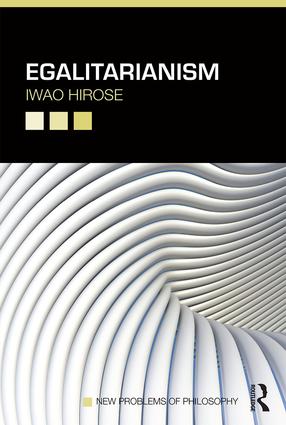Finally I've found a book that explains the concept of egalitarianism and its implications with a clear message.
Distributive justice is an area not only of philosophy, but also of several other academic disciplines. For example, the formal analysis of economics is extremely important and valuable for understanding the structure of egalitarian theories of distributive justice. However, it intimidates some people. I believe that the most fruitful way to present theories of distributive justice is to integrate the results of economics and political theory into philosophical analysis.The concept:
Egalitarianism: a class of distributive principles, which claim that individuals should have equal quantities of well-being or morally relevant factors that affect their life.What it is not egalitarianism, but maybe you are not aware of:
There are at least four well-known distributive principles that are not egalitarian in the sense I defined above, yet some people think that these are egalitarian in some sense.The book reviews several perspectives on egalitarianism with concrete descriptions and comments:
The first example is utilitarianism. Utilitarianism can be defined in various ways. Take classical utilitarianism. Classical utilitarianism contends that an act is right if and only if it maximizes the total sum of people’s well-being in a given society. When we calculate the total sum, we assign equal weight to each person’s well-being and simply add up different people’s well-being. Classical utilitarianism endorses assigning equal weight
to every person’s well-being, and it might be claimed that it is egalitarian. However, it is not concerned with how people’s well-being is distributed. Thus, I do not consider it as a form of egalitarianism.
The second example is libertarianism.
The third is the Marxist principle of justice or communism
The fourth is the proportionality principle.
1 Rawlsian egalitarianismAnd two specific chapters:
2 Luck egalitarianism
3 Telic egalitarianism
4 Prioritarianism
5 Sufficientarianism
6 Equality and time
7 Equality in health and health care
The chapter on health is specially welcome and is a required reading for health economists, and for supporters of QALYs:
It is obvious that the principle of QALY maximization is utilitarian in spirit. It adds up different people’s good, and claims that we should choose the allocation that maximizes the total good. In the context of health care resource allocation, the good is QALY, which measures health benefit. QALY is added up across individuals to estimate the goodness of different outcomes. Then, the alternative that maximizes the goodness of outcome is chosen. It is not surprising that, according to QALY maximization, it does not matter how QALYs are distributed across individuals. Needless to say, all sorts of objections leveled against utilitarianism are raised against QALY maximization.
Usually, QALY maximization is understood as the unweighted sum of QALYs. However, it does not need to be so.We can make it a weighted sum and give priority to the worse off. If we give priority to the worse off, then it is possible to bring egalitarian concerns to bear on the allocation of health care resources.One chapter is not enough to disentangle the complexities of QALYs, but it is worth reading.
At the end the author explains his position:
My preferred distributive principle is the aggregate view of telic egalitarianism. I am notMy view is coincidental with the author.
willing to support Rawls’s difference principle, because I agree with Harsanyi(1975) that the difference principle in practice ignores the benefits to the non worst off groups and therefore fails to secure the stability of the basic structure of society. This stands in opposition to Rawls’s claim that the difference principle, together with other principles of justice, guarantees a satisfactory minimum, and therefore secures the stability of the basic structure.
PS The concept of telic (telelological) egalitarianism:
There are two main ways in which we can believe in equality. We may believe that inequality is bad. On such a view, when we should aim for equality, that is because we shall thereby make the outcome better. We can then be called Teleological – or, for short, Telic – Egalitarians. Our view may instead be Deontological or, for short, Deontic. We may believe we should aim for equality, not to make the outcome better, but for some other moral reason. We may believe, for example, that people have rights to equal shares. (Parfit 2000: 84)
